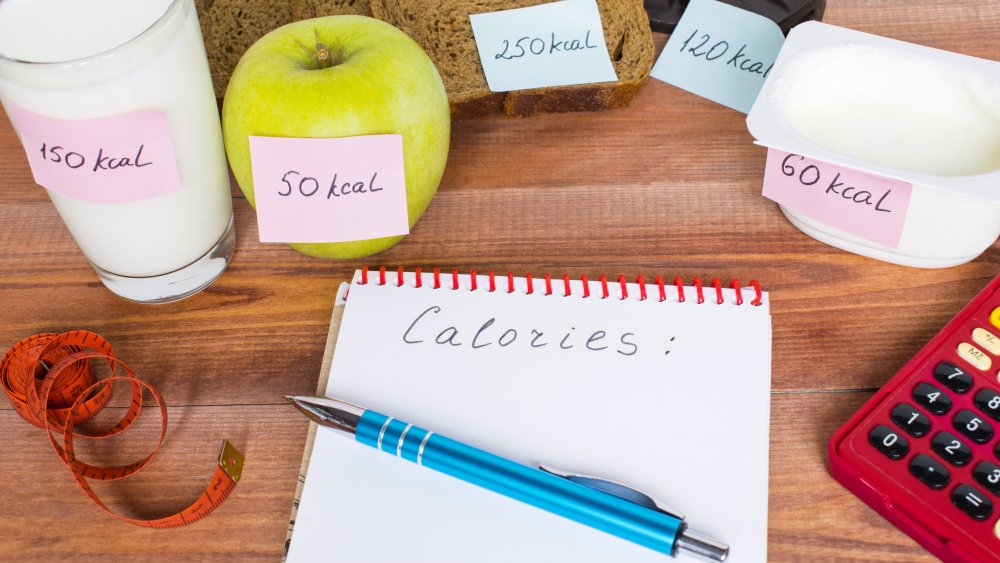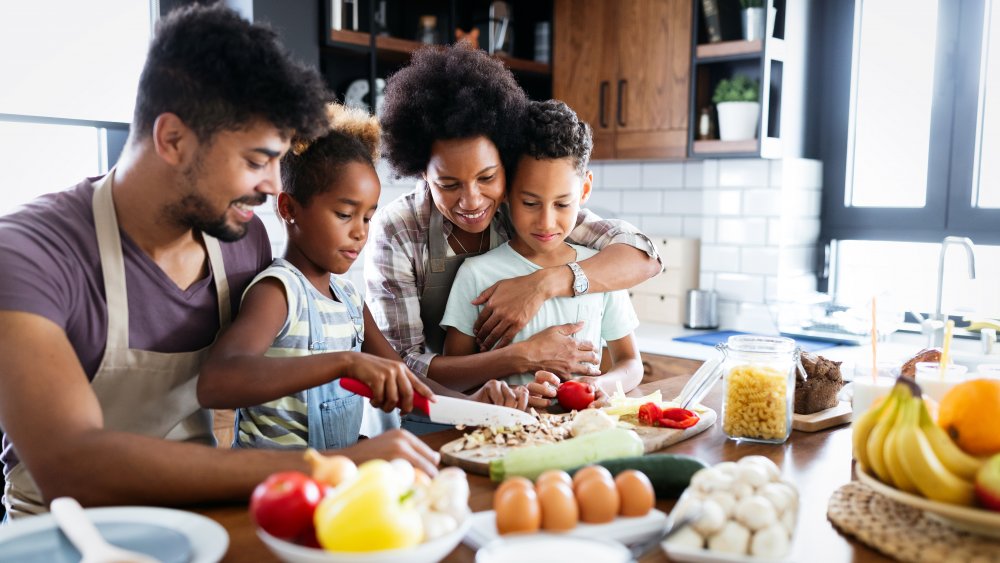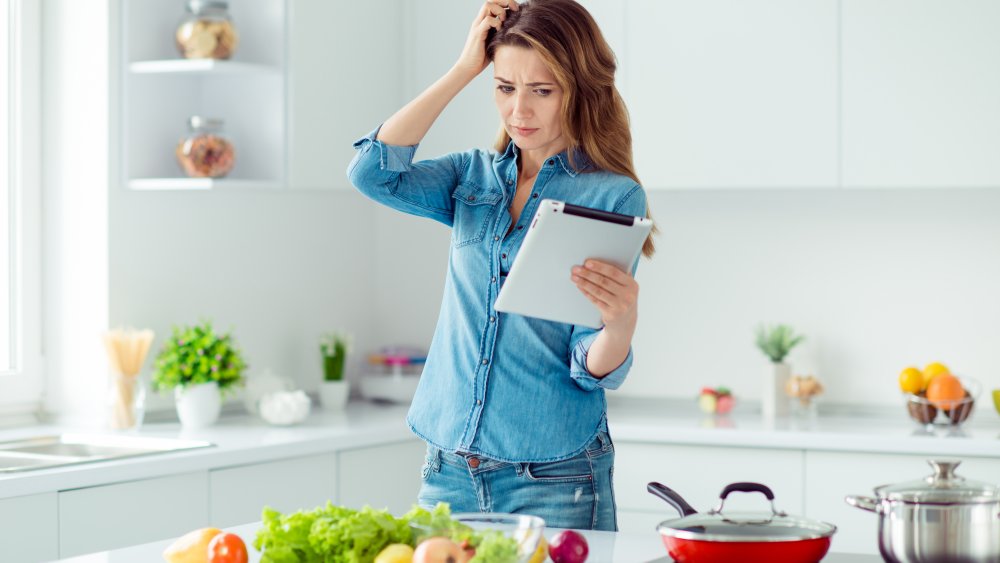Do You Really Need To Count Calories? A Dietitian Weighs In
Food is already time-consuming enough without calorie counting. You've got to plan your menu, go shopping for fresh ingredients — and then you have to actually cook what you want to eat, and clean up afterward. Adding food scales, measuring cups, and a calorie-tracking app or notebook into the equation is seriously cutting into your downtime at dinner! But isn't this task necessary to stay at a healthy weight or shed unwanted pounds?
Maybe not. In an interview with Health Digest, registered dietitian-nutritionist Grace Goodwin Dwyer, MS, MA explained, "Calories are actually one of the least important pieces of health information on a food label." So why are we all so obsessed with this number? In fact, many studies link Americans' excess calorie consumption with increased body weight over the years. Dwyer doesn't deny that indeed, we're eating more and weighing more than our grandparents did at our ages, but she does question whether counting calories is the best way to avoid overeating. "A calorie tells us technically how much energy it provides, but it does not tell us how filling the food is or what health benefits it has," she said.
Here's a better way to avoid over-eating, according to a dietitian
Instead of having your calorie calculator handy and stopping when you hit a prescribed number of calories, Dwyer said it's important to instead eat "intuitively," which means eating until you're satisfied. "Responding to how a food feels in your body, rather than what it tallies in a calorie counting app, is a more reliable guide to helping you eat the right amount," she said.
Plus, if you're so focused on not going over a certain calorie quota, you might choose foods that won't fill you up — and that could lead to binges later on. "Choosing lower-calorie foods may actually steer us in the wrong direction," Dwyer explained. "Foods that are dense in calories are often very nutritious — think olive oil, nuts, seeds, avocado, and coconut."
As an example, she suggested comparing 100 calories of gummy candy to 300 calories of peanuts. A calorie-obsessed dieter would gobble up the gummies, but Dwyer said, "I'd take the peanuts any day because they offer protein, which will be satisfying and help balance blood sugar, plus they'll have nutrients like iron, B vitamins, magnesium, and healthy fats. If I ate the peanuts, I'd be more likely to be full until my next meal. If I ate the candy, I'd feel crummy and probably still need the peanuts, anyway." (You heard it here first, folks — eating gummies can make you feel crummy!)
It's almost impossible to accurately count calories
Another reason why Dwyer doesn't love calorie counting is that it can be very hard to get the numbers right — both how many calories you should be eating to lose or maintain your weight, and how many calories are actually in food. "It's... very hard for us to know exactly how many calories we need to eat without very special equipment in a lab," she explained. "Regardless of how fancy your watch or app seems, it probably cannot accurately estimate your calorie needs. That's because calorie needs vary a lot from person to person based on your genetics, body composition, daily activity, hormones, and your dieting history."
As for the foods themselves, you can't necessarily trust what's on their labels, Dwyer noted. "Many apps and websites will show a wide range of calories for any one food. One source might tell you a banana is 80 calories, while another says it's twice that amount," she said. "It's stressful to try to keep up with this and does not have meaningful benefits for your health." Instead, said Dwyer, "I recommend really trying to rely on your hunger cues," she urged. "Sometimes we lose the ability to do this if we've spent years dieting or suffering from disordered eating, but it's totally possible to rebuild this connection and restore that trust in your body."



